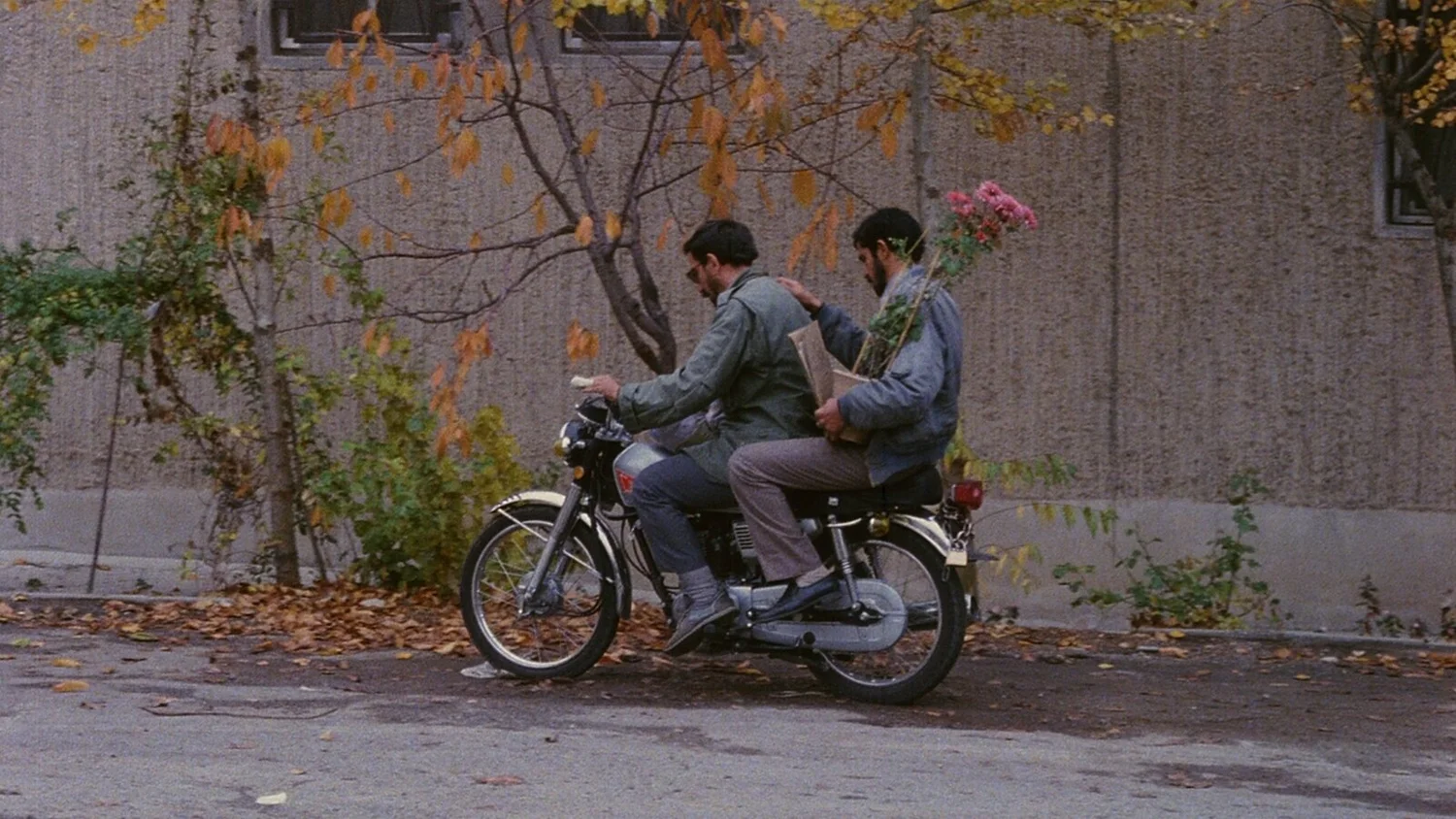2019/20 SEASON!
Thursday, November 21, 2019 - Thursday, November 21, 2019

Close-Up (1990)
Thursday, November 21, 2019 @ 7:00 PM
Globe Cinema - 617 8 Avenue SW, Calgary, AB
$12 General | $10 Members/Seniors/Students | $40 5-Pack Punch Pass | $99 Season Pass
Concluding our Masters: Abbas Kiarostami series, we are screening the film that brought the director to the world stage, Close-Up.
Close-Up’s (1990) story is almost literally “ripped from the headlines,” telling the real-life tale of a young working-class man named Hossein Sabzian who had impersonated legendary Iranian filmmaker Mohsen Makhmalbaf in order to insinuate himself into the lives of the Ahankhahs, a middle-class family living in Northern Tehran. Though Sabzian did “borrow” a small amount of money from the Ahankhahs, his motive seemed to be more complicated than that. Because all the characters in the story are played by themselves (Sabzian, the Ahankhah family, Kiarostami, and even the real Makhmalbaf), it has been common to address the film as a hybrid work, combining elements of documentary and fiction, though this does not perhaps go far enough in doing credit to the full scope of Kiarostami’s metacinematic exercise, the foundation of which is an effort to consider fabrication, artifice, film language, and the very possibility of a morally justifiable lie.
Close-Up is a film about what the cinema might be and what it might be able to do (not all of it necessarily for the greater good).Though most of the film consists of staged scenes or “reenactments,” Kiarostami complicated matters further by insinuating himself and his small crew into Sabzian’s actual criminal trial, turning it into something of a circus and almost certainly affecting considerably that which was only supposed to be documented.
If Abbas Kiarostami’s Where Is the Friend’s House? (1987) was the first of his films to receive broad international recognition, 1990’s Close-Up brought both the director and post-revolutionary Iranian cinema to prominence on the world stage. Godfrey Cheshire wrote that the seismic impact of the films was due to “formal sophistication and philosophical complexity, coming from an authoritarian theocracy,” integrated into a work of cinematic art that was “more inventive than what was issuing from Europe and the United States at the time.”
If the collaborative ethnofictions of French filmmaker-anthropologist Jean Rouch may be one precedent for Close-Up, another might be F for Fake (1973), Orson Welles’s playful hybrid film about magic, forgery, and misdirection. The opening sequence of Close-Up is a perfect case study in what makes the film so formally sophisticated and philosophically complex, culminating as it does in a central event which occurs entirely offscreen, the camera remaining out on the street and opting to focus on flowers retrieved by a taxi driver from a pile of trash and an aerosol can rolling around in the street. In the opinion of Mehrnaz Saeed-Vafa, this opening sequence constitutes “a microcosm of the Kiarostami universe, contains the very essence of his cinema.”
-Written by Jason Wierzba
MASTERS SERIES: ABBAS KIAROSTAMI
Filmmaker, poet, and photographer Abbas Kiarostami was born in 1940 in the Iranian capital of Tehran. He began making films in the 1970s, in the years leading up to the 1979 revolution, working primarily as a documentarian. From early on, Kiarostami’s films had a special focus on children, with whom he would develop an effective and idiosyncratic manner of working. A turn to narrative fiction films in the 1980s, first with Where is the Friend’s House? (1987), the first film in his newly restored Koker Trilogy, and then Close-Up (1990), a fiction-documentary hybrid, would be the beginning of the director’s remarkable ascent to international prominence. His focus on real people and locations, a product of his documentary background, has earned comparisons to the Italian Neorealist masters of the immediate postwar period, but his work is also suffused with elements adopted from Persian poetry and art. With our Masters: Abbas Kiarostami series, Calgary Cinematheque highlights five universally humanistic works from the filmmaker’s rich cinematic legacy.
About Calgary Cinematheque
We are a non-profit film society dedicated to presenting significant, challenging, and essential works of cinema art in Calgary. During our season, which runs from October to April, we screen films weekly, in curated programs which situate each film in a thematic and historical context. We do this because we believe cinema is an essential form of artistic, social, and political expression. Audiences should be able to engage with a wide range of cinematic expression, not only with what is commercially viable. We believe in the power of sharing these experiences with other people in a theatrical setting and we strive to cultivate a community around that experience.
Calgary Showtimes: Close-Up (1990) >
Calgary Cinematheque >
Calgary Cinematheque Facebook >
Calgary Cinematheque Twitter >
Facebook Event >
Eventbrite Tickets >
